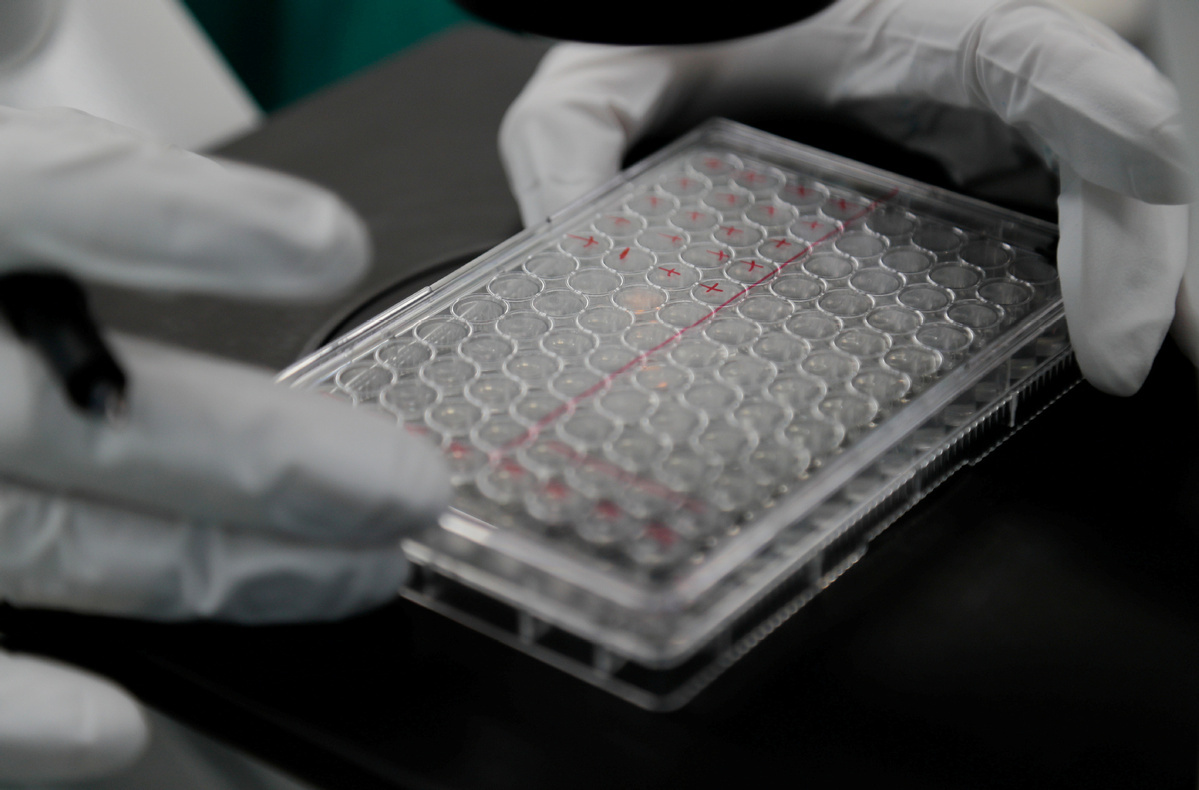
A scientist examines COVID-19 infected cells during research for a vaccine against the coronavirus disease (COVID-19) at a laboratory of BIOCAD biotechnology company in Saint Petersburg, Russia, May 20, 2020. (Photo: Agencies)
JERUSALEM - International collaboration is vital to quickly producing a COVID-19 vaccine to save lives worldwide, say Israeli medical experts.
Since the outbreak of the novel coronavirus, multiple groups of researchers around the world have been working hard to find the cure or treatment as early as possible.
Dina Ben-Yehuda, dean of the medicine school at Hebrew University of Jerusalem, said one country could hardly achieve success single-handedly in the vaccine development.
"We need international collaboration to save the world. And I hope that nobody will forget it," she stressed.
Ben-Yehuda praised China for transparency in sharing its research findings regarding the coronavirus that caused the COVID-19 pandemic.
"The fact that Chinese physicians and scientists felt a responsibility to publish everything, even the bad results, helped many people around the world and saved lives," said Ben-Yehuda.
China shared the initial information about the virus DNA with all other countries so that every one of them could work on vaccines and treatments. This kind of collaboration should continue for the benefit of all humankind, according to the professor.
Oren Zimhony MD, head of the infectious diseases unit at Kaplan Medical Center, said the international collaboration now on creating a vaccine is stronger than ever.
There are approximately eight main directions taken to work out a vaccine for COVID-19. Such a variety of possibilities increased the odds of finding the right way to the desired result, according to Zimhony.
"The major game-changer to overcome this pandemic is vaccine development," Zimhony said, who believes that the first clinical implications of the intense vaccine research will be available in six months.
Gili Regev-Yochay, director of the infection prevention control unit at Sheba Medical Center, believes that only a vaccine could stop the global outbreak of the novel coronavirus.
"It seems there is no proper treatment for COVID-19 disease patients, and the only effective global cure would be a vaccine," she noted.
The biggest challenge in the work, according to Regev-Yochay, is to find a completely safe vaccine for everybody and a reliable way to deliver it to all kinds of people with different health situations.
"We need to be very cautious with vaccines. It's much more complicated than clinical trials with the drugs," stressed Regev-Yochay.
Many COVID-19 patients don't have symptoms or have mild ones, "so we need to make sure we don't inject them with vaccines, drugs, or chemicals that could do more harm than good," she said.
International sharing of information could help researchers compare the effectiveness of different vaccines and speed up the progress of the development.
According to the statistics of the World Health Organization, currently more than 130 COVID-19 candidate vaccines are being developed worldwide, with about 10 of them being already in clinical evaluation.
Among the vaccine challenges is also its mass production for the use of all of humanity, which calls for global cooperation.
"We need to vaccinate billions of people around the globe. Better to do it before the upcoming winter to prevent the dangerous effect of dual infection of influenza and COVID-19," said Zimhony.
Ben-Yehuda said she believes new technologies of computational medicine and international sharing of big data could help create personalized medicine for COVID-19 infection, as the virus affects people differently.


